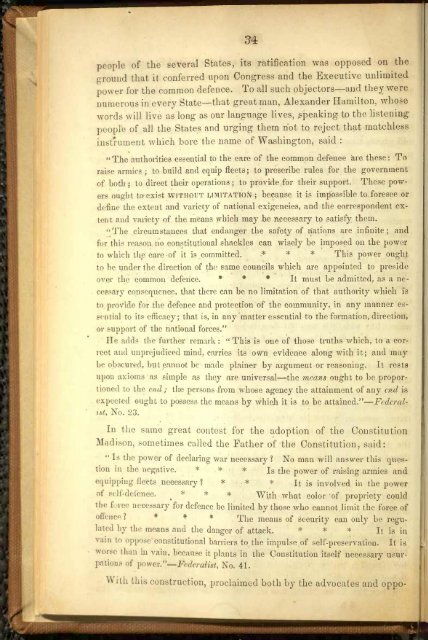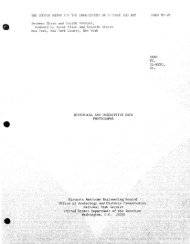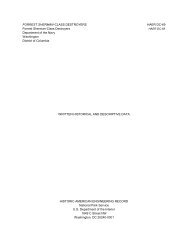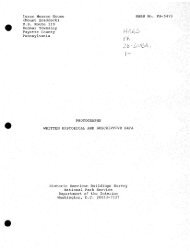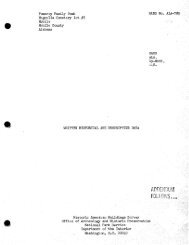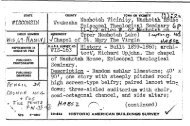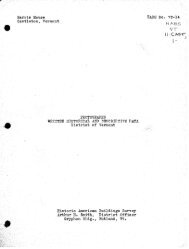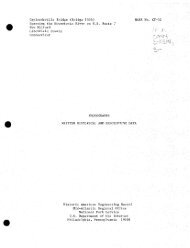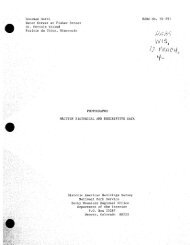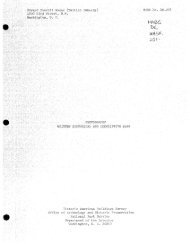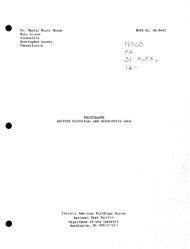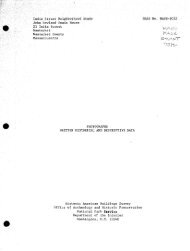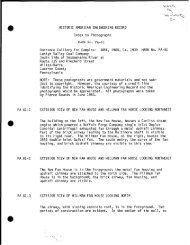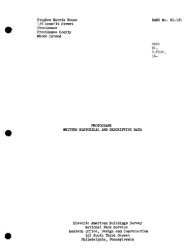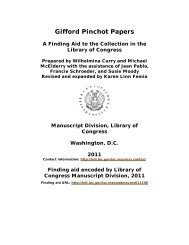Abraham Lincoln - American Memory
Abraham Lincoln - American Memory
Abraham Lincoln - American Memory
Create successful ePaper yourself
Turn your PDF publications into a flip-book with our unique Google optimized e-Paper software.
•<br />
34<br />
people of the several States, its ratification was opposed on the<br />
ground that it conferred upon Congress and the Executive unlimited<br />
power for the common defence. To all such objectors—and they were<br />
numerous in every State—that great man, Alexander Hamilton, whose<br />
words will live as long as our language lives, speaking to the listening<br />
people of all the States and urging them not to reject that matchless<br />
instrument which bore the name of Washington, said :<br />
" The authorities essential to the care of the common defence are these: To<br />
raise armies ; to build and equip fleets; to prescribe rules for the government<br />
of both ; to direct their operations; to provide for their support. These pow-<br />
sn ought to exist WITHOUT LIMITATION ; because it is impossible to foresee or<br />
define the extent and variety of national exigencies, and the correspondent ex-<br />
tent and variety of the means which may be necessary to satisfy them.<br />
"The circumstances that endanger the safety of nations are infinite; and<br />
for this reason no constitutional shackles can wisely be imposed on the power<br />
to which the care of it is committed. * * * This power ought<br />
to be under the direction of the same councils which are appointed to preside<br />
over the common defence. * * * It must be admitted, as a ne-<br />
cessary consequence, that there can be no limitation of that authority which is<br />
to provide for the defence and protection of the community, in any manner es-<br />
sential to its efficacy; that is, in any matter essential to the formation, direction,<br />
or support of the national forces."<br />
He adds the farther remark: "This is one of those truths Avhich, to a cor-<br />
rect and unprejudiced mind, carries its own evidence along with it; and may<br />
be obscured, but cannot be made plainer by argument or reasoning. It rests<br />
upon axioms as simple as they are universal—the means ought to be propor-<br />
tioned to the end ; the persons from whose agency the attainment of any end is<br />
expected ought to possess the means by which it is to be attained."—Federal-<br />
ist, No. 23.<br />
In the same great contest for the adoption of the Constitution<br />
Madison, sometimes called the Father of the Constitution, said:<br />
" Is the power of declaring war necessary? No man will answer this ques-<br />
tion in the negative. * * * Is the power of raising armies and<br />
equipping fleets necessary \ * . * * It ie involved in the power<br />
of self-defence. * * * Wfoh what color of propriety could<br />
the I ice necessary for defence be limited by those who cannot limit the force of<br />
oilence? * The means of security can only be regu-<br />
lated by the means and the danger of attack. * * * It is in<br />
vain to oppose constitutional barriers to the impulse of self-preservation. It is<br />
worse than in vain, because it plants in the Constitution itself necessary usur-<br />
pations of power."—Federalist, No. 41.<br />
With tins construction, proclaimed both by the advocates and oppo-


